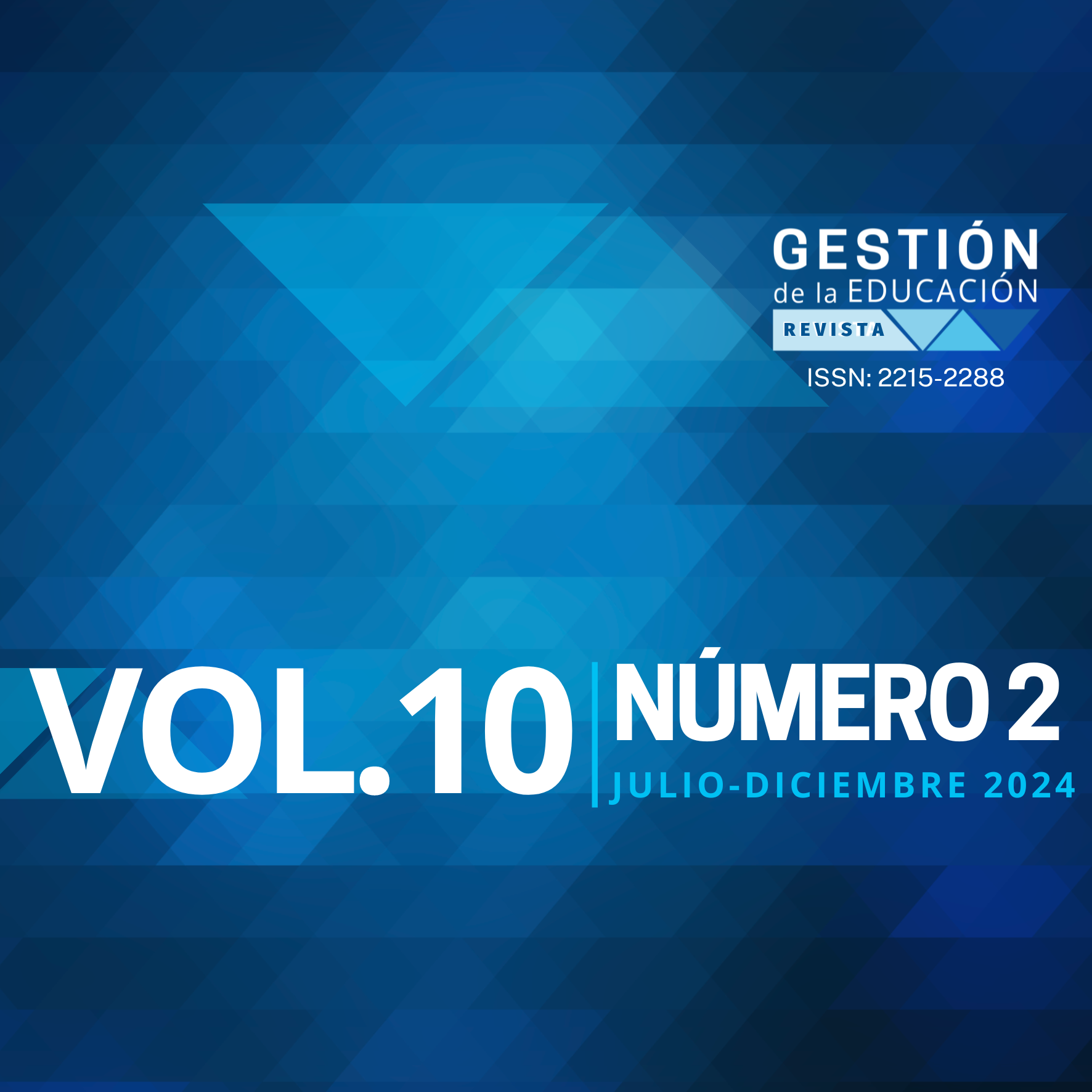Abstract
This paper aims to examine the curricular management undertaken by the principal at Escuela Unificada República de Perú for the implementation of the Reading Promotion Policy. It is of interest to educational administration because the effective integration and coordination of this policy into the school curriculum contribute to the improvement of educational quality. This is because, by establishing a meaningful correlation between policies and curriculum planning, educational administration can optimize available resources and cultivate an environment that strives for quality and excellence in the teaching-learning process. This study employs a qualitative research approach with a phenomenological design, allowing us to comprehend the study phenomenon through the experiences and perspectives of the informants. To collect information, non-participant observation, semi-structured interviews, and focus groups are implemented as research techniques. Twelve informants, distributed among the teaching, administrative, and administrative technical staff, are part of the sample. The findings reveal a significant factor: the lack of family support, which is crucial for the initial development of reading and writing skills. The school lacks an Institutional Reading Plan (PIL), and there is also a deficiency in training for the teaching and administrative staff regarding the Reading Promotion Policy. This implies that there is no curricular management process that allows the integration of said policy into the school curriculum.
References
Alvarado, N. (2019). Gestión curricular desde la visión del docente como constructor del currículo. Revista REDINE. (11)1, 9-22. https://core.ac.uk/download/pdf/270309534.pdf
Arroyo, J. (2001). Supervisión y evaluación educativa. Universidad de Costa Rica.
Capella, J. (2004). Políticas educativas. Dialnet, 13(25), 7-41. https://dialnet.unirioja.es/servlet/articulo?codigo=5056854
Chacón, L. (2014). Gestión educativa del siglo XXI: bajo el paradigma emergente de la complejidad. Revista Omnia, 20(2), 150-161. https://www.redalyc.org/pdf/737/73735396006.pdf
Chiavenato, I. (2007). Administración de recursos humanos. Mc GrawHill Interamericana Editores S.A.
Cruz, R. (2020). Significado sobre política educativa desde la perspectiva del profesorado de educación obligatoria y superior en México. Revista Educación, 45(1), 1-18. https://doi.org/10.15517/revedu.v45i1.40597
Garbanzo, G y Orozco, V. (2007). Desafíos del sistema educativo costarricense: un nuevo paradigma de la administración de la educación. Revista Educación, 31(2), 95-110. https://revistas.ucr.ac.cr/index.php/educacion/article/view/1246/1309
García, J; Cerdas, V y Torres, N. (2018). Gestión curricular en centros educativos costarricenses: Un análisis desde la percepción docente y la dirección. Revista Electrónica Educare, 22(1), 1-28. https://www.revistas.una.ac.cr/index.php/EDUCARE/article/view/8681
Martínez, L. (2012). Administración educativa. https://www.academia.edu/6358909/Administraci%C3%B3n_Educativa_de_LUCIA_MARTINEZ_AGUIRRE
Ministerio de Educación Pública (MEP). (2013). Política de Fomento de la Lectura. https://www.mep.go.cr/educatico/politica-fomento-lectura
Pérez, J; Giraldoth, D; Valles, M; Lugo, L. y Nava. N. (2018). Supervisión educativa como acompañamiento pedagógico por los directores de educación media. Revista Panorama, 12(23), 63-73. https://dialnet.unirioja.es/servlet/articulo?codigo=6805692
Programa Estado de la Nación. (2021). Octavo Estado de la Educación. CONARE-PEN. https://estadonacion.or.cr/wp-content/uploads/2021/09/resumen_ee.pdf
Programa Estado de la Nación. (2023). Noveno Estado de la Educación. CONARE-PEN. https://estadonacion.or.cr/?informes=informe-estado-de-la-educacion-2023
Robbins, S y Coulter, M. (2010). Administración. Prentice-Hall.
Robles, A. (2021). Del discurso a los hechos: Política educativa del Ministerio de Educación Pública de Costa Rica. Revista ensayos pedagógicos, 16(1), 117-140. https://doi.org/10.15359/rep.16-1.6
Zayas, F. (2012). Los géneros discursivos y la enseñanza de la expresión escrita. Revista Iberoamericana de Educación, 59(1), 63-85. https://doi.org/10.35362/rie590457
##plugins.facebook.comentarios##

This work is licensed under a Creative Commons Attribution-NonCommercial-NoDerivatives 4.0 International License.



